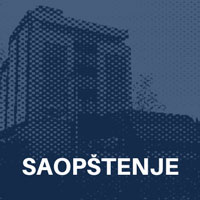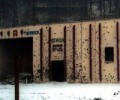The Court of Appeal rules on General Diković’s lawsuit against the HLC and Nataša Kandić
 The Court of Appeal in Belgrade has upheld the first-instance ruling by the First Basic Court in Belgrade which awarded the Chief of the Serbian Army General Staff 550,000 dinars in damages for the mental anguish he suffered as a result of the damage to his honour and reputation caused, as found by the court, by the Humanitarian Law Center (HLC) which published untrue factual allegations in its “Ljubiša Diković” File, and by HLC founder Nataša Kandić, who publicly expressed untrue factual allegations and value judgements about him which were offensive and harmful to his dignity. In the view of the HLC, the Court of Appeal’s ruling departs drastically from the case law of the European Court of Human Rights (ECHR), further limits the space for debate on issues of public concern, and protects government officials from any criticism and public scrutiny of their possible criminal responsibility for past war crimes. The HLC will lodge an appeal with the Constitutional Court against the ruling.
The Court of Appeal in Belgrade has upheld the first-instance ruling by the First Basic Court in Belgrade which awarded the Chief of the Serbian Army General Staff 550,000 dinars in damages for the mental anguish he suffered as a result of the damage to his honour and reputation caused, as found by the court, by the Humanitarian Law Center (HLC) which published untrue factual allegations in its “Ljubiša Diković” File, and by HLC founder Nataša Kandić, who publicly expressed untrue factual allegations and value judgements about him which were offensive and harmful to his dignity. In the view of the HLC, the Court of Appeal’s ruling departs drastically from the case law of the European Court of Human Rights (ECHR), further limits the space for debate on issues of public concern, and protects government officials from any criticism and public scrutiny of their possible criminal responsibility for past war crimes. The HLC will lodge an appeal with the Constitutional Court against the ruling.
As the Court of Appeal rejected most of the allegations set forth in the HLC’s appeal without providing any arguments for so doing, there is the sense that its ruling has not been governed by reasons of law:
In its appeal, the HLC pointed to a violation of freedom of expression. Namely, the Court of Appeal in its judgment failed to give due consideration to the fact that Ljubiša Diković is a public figure and a senior state official and that the information published by the HLC did not concern his private life. The court ignored the extensive case law of the European Court of Human Rights concerning the right to freedom of expression versus the right to privacy of a public figure, which strongly emphasizes that “the limits of acceptable criticism are wider when it comes to public servants”, and that the right to freedom of information includes “even statements capable of causing damage to individuals” or information which “offends, shocks or disturbs”. The Court of Appeal only stated, briefly and without providing any further explanation, that “freedom of expression, even when the opinion expressed concerns state officials, is not an unlimited right.”
The HLC also pointed to a violation of the right to a public trial. Namely, the public was allowed to follow the proceedings in the courtroom until the moment came when Nataša Kandić was to cross-question Ljubiša Diković. At that moment, during the hearing held on 15 September 2015, the Presiding Judge ruled to exclude the public, explaining that the courtroom was too small to hold members of the press. It should be noted that the very same courtroom had been used throughout the proceedings, and that its limited space had not previously been used as a reason to close the hearings. Even though the HLC referred to the relevant case law of the European Court of Human Rights and the UN Human Rights Committee, according to which national judiciaries have a duty to enable the public to attend hearings which draw high public attention, such as those involving the questioning of a public official, the Court of Appeal stated, very briefly and without any explanation, that “the court of first instance acted properly in concluding that the public should be partially excluded in the interest of public order, and in doing so, it did not in any manner suspend the norms of a democratic society.
In its appeal, the HLC also pointed to a violation of equality of arms, i.e. the right to defence. Namely, at the preparatory hearing, the court of first instance refused to hear any of the evidence proposed by the HLC because it was, in the court’s opinion, “superfluous for litigation proceedings” and “irrelevant for the resolution of the dispute that is the subject-matter of the litigation”, despite the fact that the court had requested the HLC to prove the truth of its allegations which gave rise to the lawsuit. Even though the HLC was in this way denied de facto the right to defence and the right to adversarial proceedings, the Court of Appeal tersely and without any explanation stated that “the rejection of certain proposals for evidence put forward by the defendants did not infringe their right to adversarial proceedings”, adding that “the decision on the evidence to be used in determining the underlying facts […] comes within the competence of the court.”
Particularly worrisome is the Court of Appeal’s conclusion that the reputation and honour of Ljubiša Diković were damaged “by the presentation of unproven facts that have an offensive connotation capable of causing harm to human dignity.” That the facts presented in the File and other statements were unproven the court infers from the fact that “it has been established beyond doubt that the plaintiff has not been subject to criminal prosecution for any criminal offence.” First and foremost, the files and statements which are the subject of the lawsuit presented evidence that implicate Ljubiša Diković’s accountability for criminal acts committed during the wars in the former Yugoslavia, along with the opinion that he is unworthy of holding the office of Chief of the Serbian Armed Forces General Staff, for the purpose of informing the general public and competent government institutions about issues of public concern. In this regard, the HLC had the obligation to prove in court the truth of its indications that Diković is responsible for war crimes, not to prove that the plaintiff is responsible for war crimes, because the latter falls within the competences of the judiciary, as the court rightly observed. In order to prove its indications, the HLC drew attention of the Court of Appeal to a number judgments of the International Criminal Tribunal for the former Yugoslavia (ICTY), exhibits, and statements of victims, witnesses and survivors, which all testified to war crimes committed in the area of responsibility of the brigade under Diković’s command. However, the Court of Appeal failed to take any of them into consideration, but instead satisfied itself that Diković “has not been subject to criminal prosecution”, despite the fact that he was under preliminary investigation by the Office of the War Crimes Prosecutor.
Such an inference runs contrary to the relevant case law in the area of freedom of expression. For instance, in a case that also concerns publishing information that suggests the criminal responsibility of a state official (Dalban v. Romania, No. 28114/95, para. 50), the journalist who published the information was not required by the European Court to prove the criminal responsibility of the person concerned. Instead, the European Court upheld the principle of freedom of expression by concluding that there is no proof that the description of events given in the articles was totally untrue and designed to fuel a defamation campaign. In contrast to this case law, the Court of Appeal in Belgrade ignored completely the extensive body of evidence presented before the ICTY concerning the crimes committed in the area of responsibility of the brigade commanded by Diković, as well as the statements of witnesses interviewed by the HLC’s researchers, and went on to conclude that the facts presented by the HLC were unproven – although the HLC offered strong indications pointing to the former Commander of the Yugoslav Army (VJ) 37th Motorized Brigade’s responsibility for war crimes committed in his area of responsibility. Finally, the right to freedom of expression and the guarantees it provides to organisations working in the public interest are aimed at enabling free public debate on issues of public concern – “not discouraging members of the public, for fear of criminal or other sanctions, from voicing their opinions on issues of public concern“ [European Court: the cases of Barfod v. Denmark, Lingens v. Austria, Incal v. Turkey, etc]. The consequences of the Court of Appeal’s ruling could prove to be quite the opposite and suggest that it is forbidden for members of the public to criticise and subject to scrutiny the responsibility of a state official, even when thousands of pages of authentic evidentiary material testify to it, all under the seemingly legitimate and lawful justification that the responsibility of the state official had not been proven by a criminal conviction. In this way, the already widespread impunity for crimes committed during the wars in the former Yugoslavia is further secured by forbidding public debates on the responsibility of possible perpetrators.
Chronology of the case
The HLC published the “Ljubiša Diković” File on 23 January 2012 in order to draw public attention to the evidence concerning the crimes committed in the area of responsibility of the brigade commanded by Ljubiša Diković during the war in Kosovo, namely in the municipalities of Skenderaj/Srbica and Gllogoc/Glogovac, as well as during Diković’s engagement at the time of the war in Bosnia and Herzegovina, and to suggest that because of that he is unworthy of holding the position of Chief of the Serbian Armed Forces General Staff. In April 2012, General Diković filed a private criminal complaint against Nataša Kandić for libel. However, after the amendments made in the criminal law had de-criminalised libel, the complaint was dismissed. So General Diković in February 2013 filed a lawsuit seeking one million dinars in compensation from the HLC and Nataša Kandić, under joint and several liability, for the non-pecuniary damage he had suffered, namely damage to his reputation and honour.
The HLC subsequently came into possession of new evidence regarding the involvement of the VJ 37th Motorized Brigade in crimes against Albanian civilians in Kosovo and the subsequent concealment of the bodies of victims in a clandestine mass grave at Rudnica.
In 2012, the OWCP refused to investigate the allegations set out in the “Ljubiša Diković” File. In October 2015, the OWCP notified the HLC that on the basis of the HLC’s criminal complaint against Diković and another three former members of the VJ 37th Motorized Brigade, the OWCP had launched a preliminary investigation into the crime in Rezalle/Rezala, where members of the VJ killed more than 40 civilians. The mortal remains of 27 victims were later found in the Rudnica mass grave.
On 3 March 2016, the First Basic Court ruled that the HLC was to pay General Diković 550,000 dinars for damaging his honour and reputation. The record of the proceedings (in Serbian) is available here.
The ruling of the Court of Appeal in Belgrade upholding the first-instance ruling was issued on 18 August 2016 and delivered to the HLC on 14 October.








